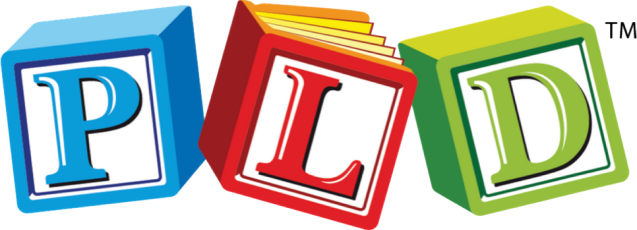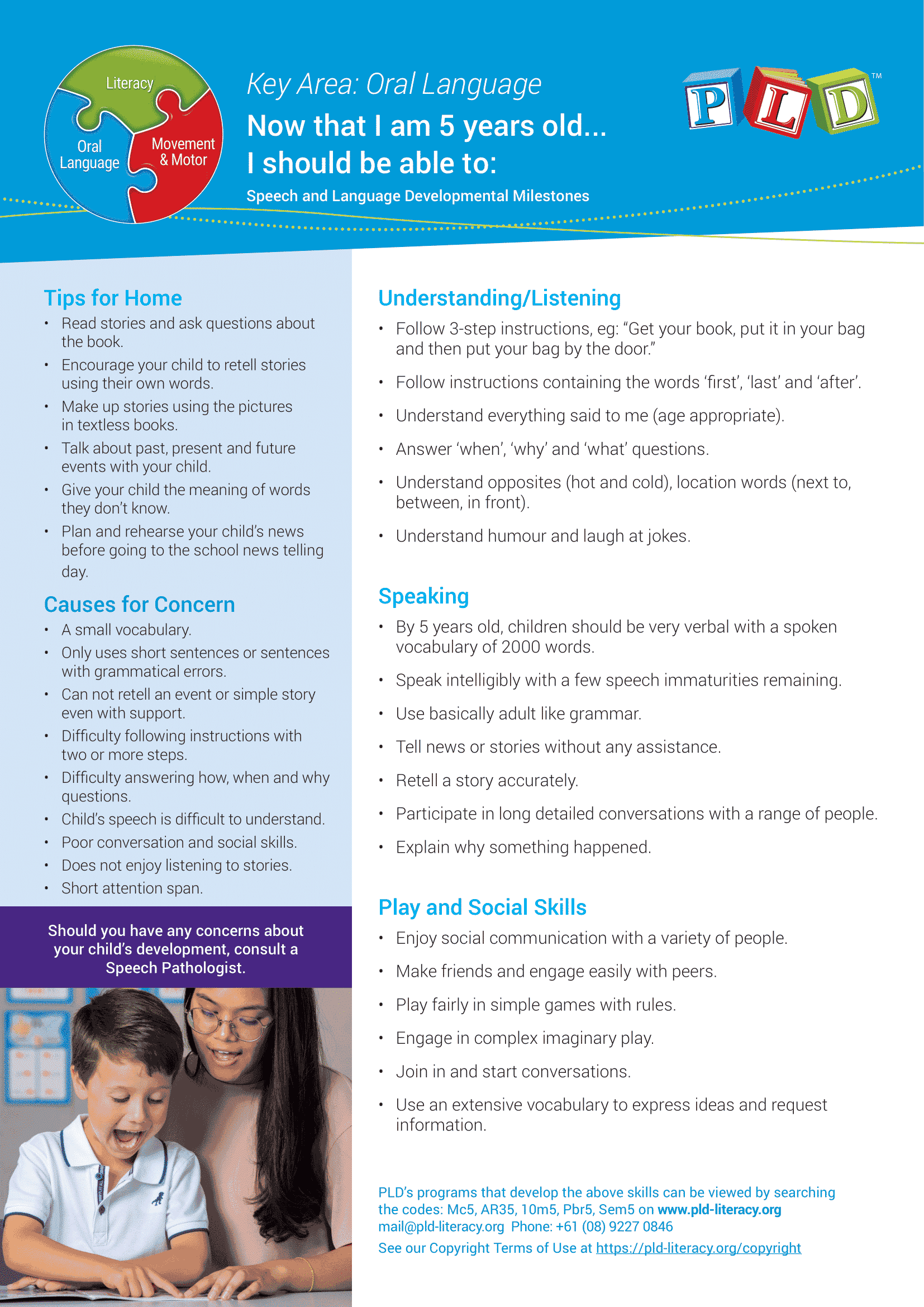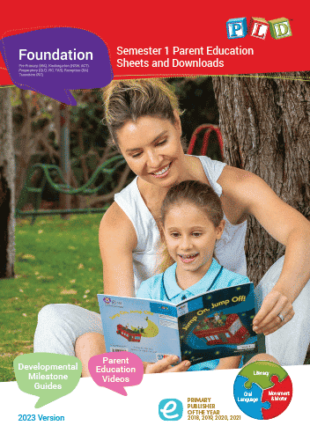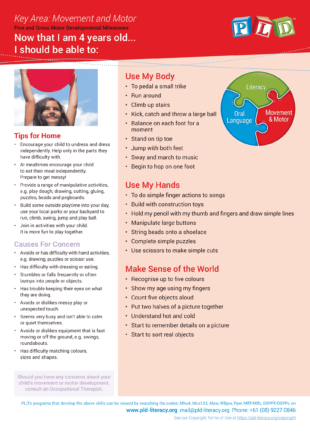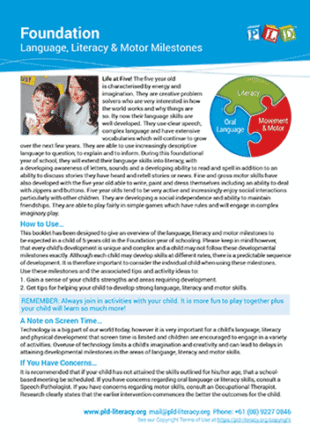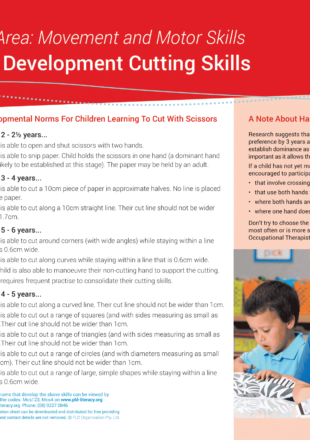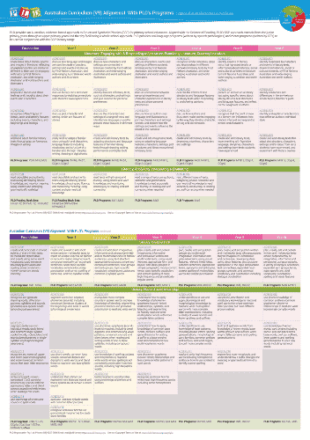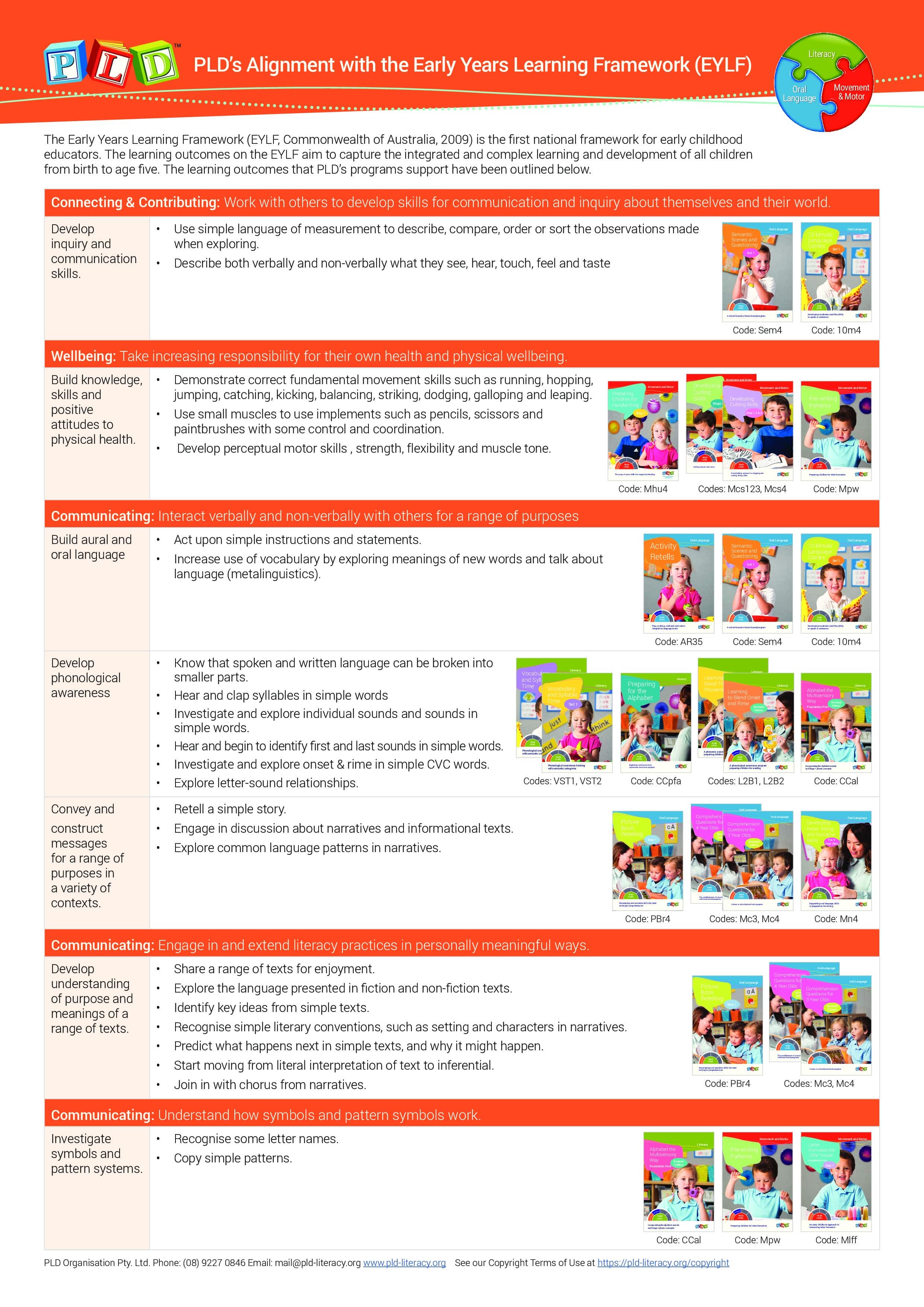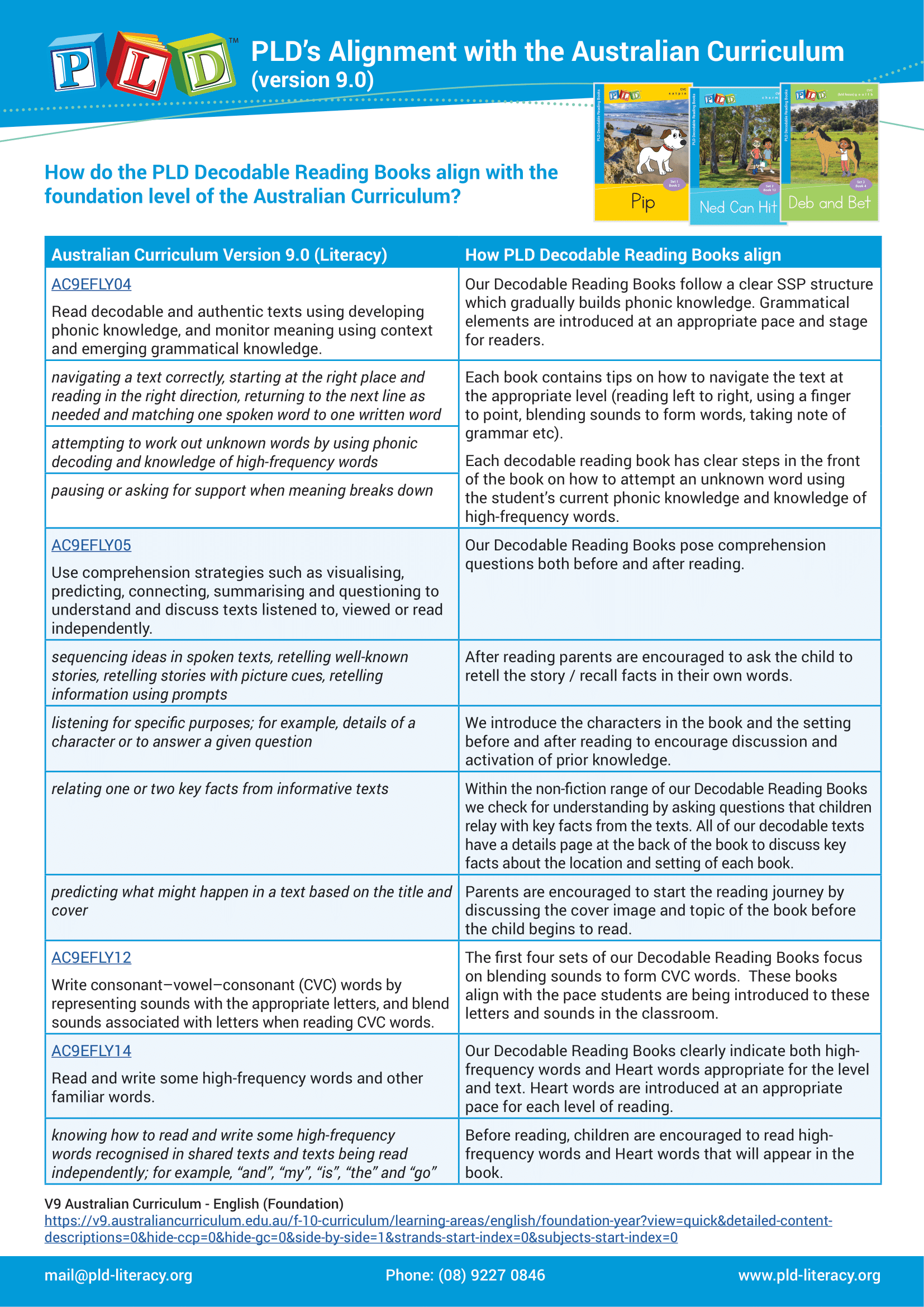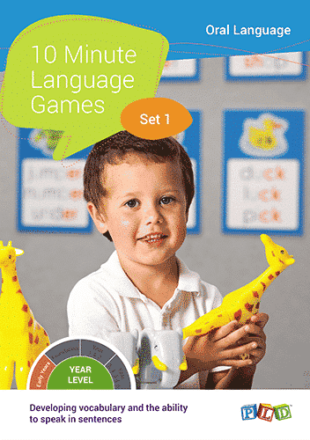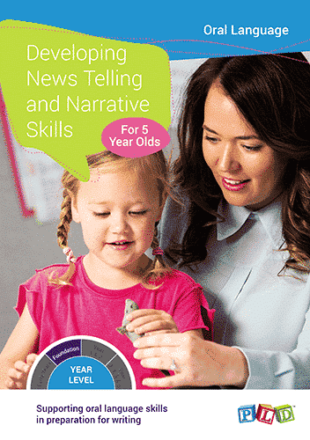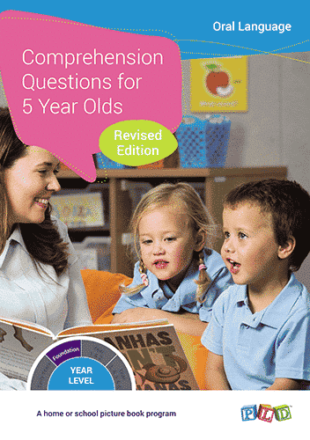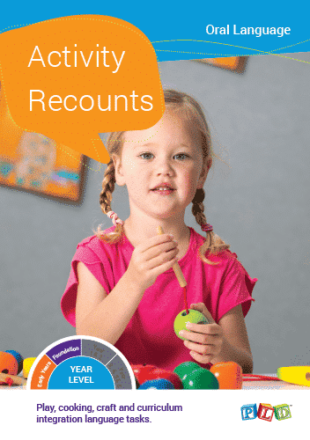-
Foundation Parent Education Sheets and Downloads – Semester 1
This booklet outlines key information to be provided to parents, caregivers and the wider community within semester one. Children benefit when home and school work together. To support this, PLD offers an extensive range of parent milestone information sheets and videos. These resources are ideal to be disseminated to parents and the wider community through […]
This booklet outlines key information to be provided to parents, caregivers and the wider community within semester one. Children benefit when home and school work
-
Fine and Gross Motor Developmental Milestones – 4 years old
This fine and gross motor development milestone poster/sheet for 4 and 5 year old children outlines tips for home and causes for concern.
Designed by Occupational Therapists this resource promotes awareness of early motor developmental milestones. The sheet outlines: What children be able to do with their body. Tips
-
Private: Foundation year Language, Literacy & Motor Developmental Milestones
A booklet that provides an overview of language, literacy and motor milestones for children in the foundation year (5 and 6 year olds). Tips for home and causes for concern are also outlined. The booklet can be photocopied back to back and then folded in half to provide a compact reference.
Life at Five! The five year old is characterised by energy and imagination. They are creative problem-solvers who are very interested in how the world
-
Developing Cutting Skills Milestones – Ages 2 to 6 Years Old
A milestone sheet which identifies age based norms for developing cutting skills in children aged 3 to 6 years.
Over a period of several years, children progress through several steps when learning to cut with scissors. At age 2 – 2½ years… Child is
Speech and Language Development Milestones – 5 years old
This milestone poster/sheet details the speech and language developmental milestones for 5 year olds.
Designed by speech and language pathologists, the speech and language milestone sheets provide a list of typical milestones that should be attained by specific ages. In the event that a child is not demonstrating what is expected for their age, it is recommended that a speech pathologist is consulted. The sheets also include specific causes for concern and suggestions for parents within the home.
While PLD no longer offers a clinic, the following download may be useful when seeking specific information from the school or the early childhood service for the speech pathologist: Observations of a student to accompany a referral to a Speech Pathologist.
- 3 years old with accompanying parent education video
- 4 years old with accompanying parent education video
- 5 years old with accompanying parent education video
- 6 years old with accompanying parent education video
- 7 years old with accompanying parent education video
- 8 years old with accompanying parent education video
Additional parent education playlists are located at: https://www.youtube.com/user/pldliteracy/playlists
Books: PLD’s books may only be used by the Authorised Purchaser, and the Authorised Purchaser’s students, and only in conjunction with classes taken by the Authorised Purchaser. PLD’s books may be photocopied up to 10% per year for use only by the Authorised Purchaser. The Authorised Purchaser is defined as the original purchaser of the PLD materials.
eBooks: PLD’s eBooks may only be used by the Authorised Purchaser, and the Authorised Purchaser’s students, and only in conjunction with classes taken by the Authorised Purchaser. The Authorised Purchaser is defined as the original purchaser of the PLD eBook. Under the ‘Statutory Educational Licence’ the authorised purchaser can:
- View the eBook as a whole or in part
- Copy the eBook to their personal drive or locally on their device
- Display the eBook on your Interactive Whiteboard, projector or smart TV, for the purpose of teaching the students in their own classroom
- Photocopy or print up to 10% of the eBook per year, for use with the students in their classroom(s).
For copyright purposes, every page of the PLD eBooks will be stamped with the name & email address provided by the purchaser at the time of order. PLD ebooks belong solely to the purchaser and may not be shared with colleagues, parents or anyone else. PLD eBooks must not be uploaded to school servers, intranets or online platforms. Schools wishing to licence PLD eBooks can contact us HERE.
School Licences: A School Licence is a multi-user subscription to a PLD resource, such as a book or program, in a digital and printable format that is accessible via the ‘My Subscription’ section of the PLD website. A School Licence is valid for 12 months from the date of purchase and can be used by an unlimited number of teachers within a school. When bought under a School Licence:
- Resources are accessible in digital, flipbook format, which teachers can access from anywhere, at any time, on any device via the PLD website.
- The resources can be used by any amount of teachers in that school.
- Multiple teachers can access the resources simultaneously.
- The resource is available to print, subject to the standard 10% per year limitation as per Australian Copyright law.
- Updated versions of resources will be automatically accessible to users with a current licence for free, ensuring all users have access to the latest versions of resources.
- Resources are stored centrally and accessed via a secure login account on the PLD website. Thus, all currently subscription resources are accessible in the one convenient place, making resources extremely easy to find. Moreso, the school licence offering eradicates the frustration of lost or misplaced resources and programs which happens often with hardback books.
Additional information can be accessed via the following links:
Books: https://support.pld-literacy.org/en-au/article/plds-printed-electronic-materials-how-can-they-be-used-can-i-share-them-with-a-friendcolleague-9lk4y/
eBooks: https://support.pld-literacy.org/en-au/article/the-pld-ebooks-how-can-they-be-used-what-is-the-copyright-policy-ptfya8/
PLD’s Copyright Policy: https://support.pld-literacy.org/en-au/article/copyright-and-terms-of-use-of-pld-literacy-15tkcer/

